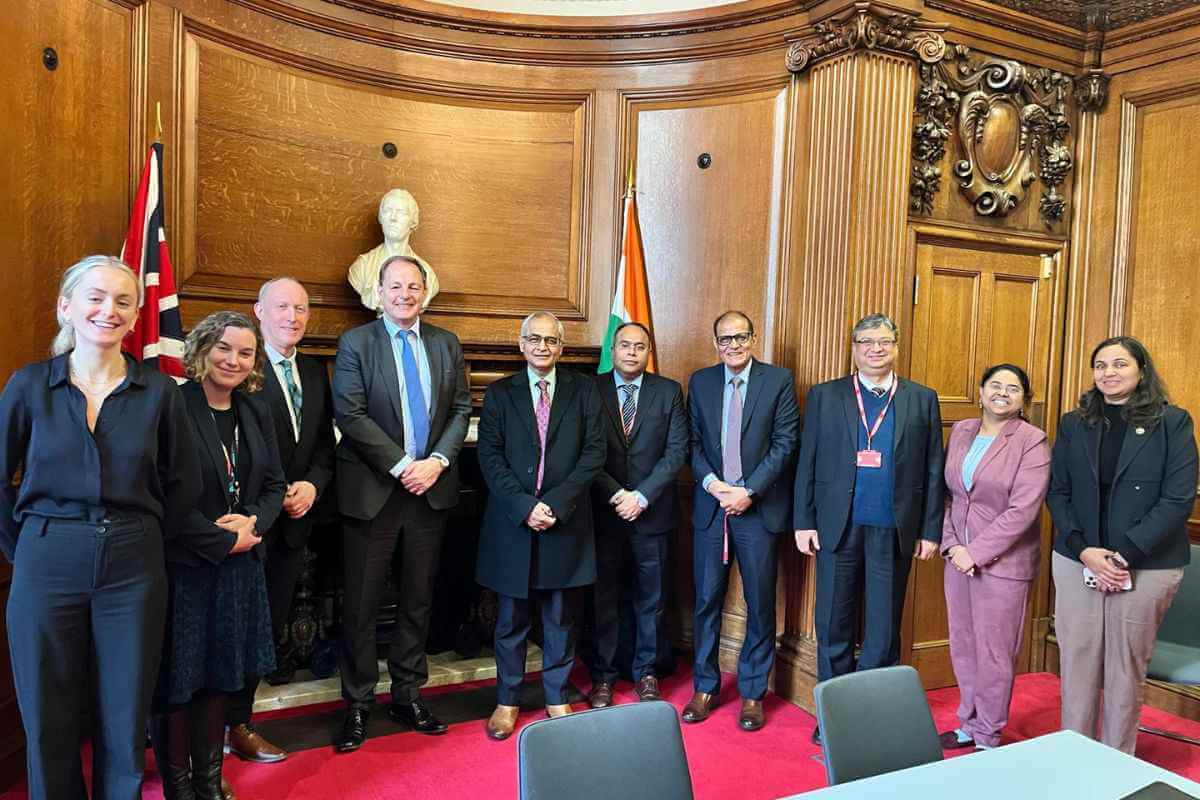
India and the UK have agreed to discover collaborative alternatives in next-generation telecommunications, synthetic intelligence (AI), and rising applied sciences, together with the Open Radio Entry Community (Open RAN) and house know-how. Moreover, the Centre for Improvement of Telematics (C-DoT) and London-based Sonic Labs have signed a Memorandum of Understanding (MoU) to collaborate on Open RAN-related coverage and technical issues. This contains developments in 5G Open RAN and the mixing of AI in 4G and 5G, in response to an official assertion from the Ministry of Communications on Friday.
Additionally Learn: India to Function Totally on 5G by 2026, Creating Indigenous 6G: Report
Excessive-Stage Conferences and MoU Signing
These bulletins come as Neeraj Mittal, the Secretary (Telecom) of India, visited the UK (UK) to have interaction with the Division of Science, Innovation, and Expertise (DSIT), UK, and discover alternatives for collaboration, additional strengthening Indo-UK ties in essential areas. The go to included high-level conferences, discipline visits, and a big MoU signing.
The Secretary (Telecom) met with Chris Johnson, Nationwide Scientific Adviser, and Dave Smith, Nationwide Expertise Adviser of DSIT. The discussions centered on rising applied sciences and their purposes in 5G, 6G, and digital infrastructure safety, the ministry said.
The telecom secretary additionally met with Geoff Huggins, Director of the Digital Directorate, Authorities of Scotland, to debate collaborative efforts in digital transformation via telecom, telecom safety, and rising telecom applied sciences, the assertion added.
Additionally Learn: Govt Seeking to Guarantee 100 Mbps Per Buyer With 6G: Report
Area Go to
Moreover, the secretary met with Jean Innes, CEO of the Alan Turing Institute, to debate potential collaboration in digital twins, AI for telecom safety, moral AI, and fostering an AI innovation and startup ecosystem.
Mittal performed a discipline go to to one of many six Federated Telecom Hubs (FTH) within the UK, specializing in Cloud and Distributed Computing (CHEDDAR). This hub leads analysis in 6G distributed cloud, AI for 6G, inexperienced 6G, and superior sensing applied sciences, the ministry mentioned.
Moreover, Mittal visited Scotland’s 5G Centre on the College of Strathclyde and the 6G Analysis Centre on the College of Glasgow’s James Watt College of Engineering. He mentioned collaboration in 6G innovation, future sensing applied sciences, know-how exchanges such because the 5G stack, and pupil alternate packages to foster educational and industrial partnerships.
Additionally Learn: India to Promote Low cost Knowledge Charges, 5G Growth to Appeal to International Investments: Report
UK-India Telecom Roundtable
Constructing on the muse of the UK-India Expertise Safety Initiative (TSI), the place telecom stays a key precedence, a roundtable dialogue was convened with key UK stakeholders from DSIT, enterprise entities comparable to BT and Ericsson, and innovation hubs and facilities, together with Sonic Labs, UK Telecom Labs, Titan, and Joiner. Representatives from the UK House Company, the European House Company, Innovate UK, and the UK Expertise Innovation Community (UKTIN) additionally participated, exploring avenues for mutual cooperation, the ministry mentioned.
Additionally Learn: India and ITU Signal Pact to Drive AI, Digital Twins, and IMT-2030 Improvements
Key Agreements and Future Prospects
The 2 nations have additionally agreed to determine joint Centres of Excellence specializing in telecom cybersecurity, AI in telecom, and digital twins; collaborate with British telcos to leverage cell phone information for infrastructure planning, just like India’s success in utilizing such information for metro route planning; make joint contributions to the Worldwide Telecommunication Union (ITU) for IMT 2030 (6G) requirements growth; set up new testing amenities; collaborate on digital twins, quantum communication options, and submarine sea cable safety; promote India’s indigenous 4G and 5G stack developed by C-DoT; and collaborate on house know-how communication (TN-NTN), amongst different initiatives, the ministry mentioned.
